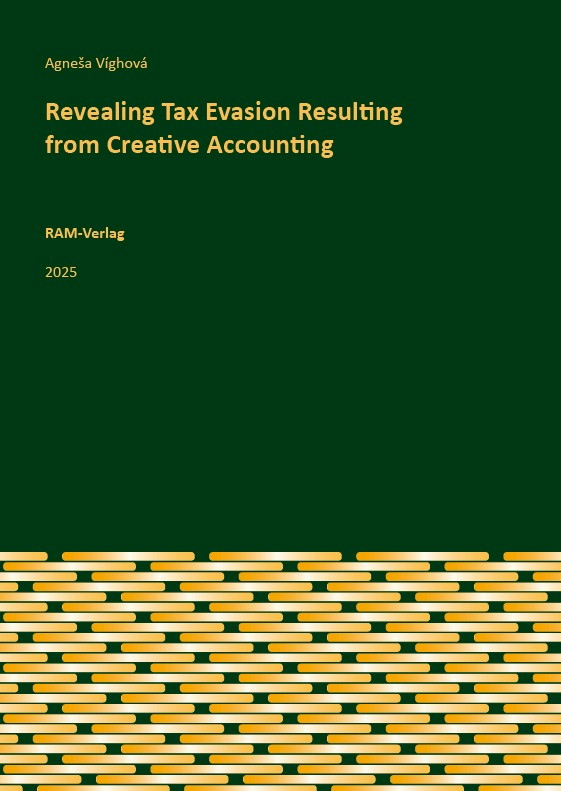|
 |
INTRODUCTION
According to available information, tax evasion was up to €168 billion within the European Union in 2019, while the largest share of tax evasion is from VAT. It is possible to state that the amount of tax evasion represents an amount that is missing from individual national budgets on the revenue side and represents an alarmingly high value. It follows from the above that the European Commis-sion has called on member states to introduce measures to effective-ly reduce tax evasion. In the Slovak Republic as well as in the EU, tax evasion is detected by employees of the Financial Administra-tion of the Slovak Republic and auditors. The presented monograph contains the procedure and results of the detection of tax evasion by the Financial Administration of the Slovak Republic and the statutory auditors.
The main goal of tax authorities is to collect taxes in accordance with legal regulations and fight against fraud. However, in some of the most serious cases, criminal organizations implement sophisti-cated systems to obtain money from state budgets, mostly through intra-community fraud, based on the missing business entity, rein-vestment of tax fraud proceeds in criminal activities or money laundering. This requires, on the one hand, the cooperation and mu-tual assistance of tax administrations in the collection of taxes and the fight against fraud in the global economic environment, and on the other hand, intensive cooperation with other administrations and authorities. The Slovak Republic is a member state of the Euro-pean Union, business entities do business without borders, therefore effective fight against tax evasion is possible only by joint forces with the Financial Administrations of the EU member states. There-fore, the Fiscalis 2024 program is in the process of being created, which represents the European Union’s framework for improving the functioning of tax systems in the internal market by strengthen-ing cooperation between participating countries, their tax authorities and their officials. The mentioned project focuses on the
fight against tax evasion and avoidance of tax obligations in the form of determining the following six measures:
– Ensure the transparency of binding tax rulings,
– Simplify legal regulations on automatic exchange of infor-mation,
– Assess other possible initiatives related to transparency,
– Introduce a code of conduct for business taxation,
– Strive for a more precise calculation of the tax gap,
– To support greater tax transparency at the international level.
In addition to the above-mentioned measures in the framework of international cooperation, it is necessary to harmonize double taxa-tion treaties and strengthen controls at the international level with a focus on transfer pricing. Reconciliation of these two areas is there-fore important, because in the field of international taxation and transfer pricing, both multinational enterprises and tax administra-tions face practical problems in valuing cross-border transactions between associated enterprises for tax purposes.
With the accession of the Slovak Republic to the EU, there was an obligation to implement international auditing standards into legis-lation in the field of statutory auditing. From that date, statutory auditors perform audits according to international standards on auditing (ISA) and currently according to Act no. 423/2015 Coll., of the Act on Statutory Audit, as amended. The work of statutory auditors is independent and impartial, there are currently 760 audi-tors (natural persons) and 230 auditing companies in Slovakia. The quality control of the activities of statutory auditors is carried out by the control group appointed by the Slovak Chamber of Auditors and the control group of the Office for Supervision of Audit Per-formance.
It follows from the above that auditors act as impartial, independ-ent persons with professional skepticism when verifying the finan-cial statements of business entities as well as self-government enti-ties. In case of detection of illegal tax evasion, they have a report-ing obligation to law enforcement authorities. If the audited ac-counting unit terminates the contract on auditing services, this hap-pens mainly in a situation where the auditor discovers deficiencies, or reveals tax evasion, he is obliged to report it to the Office for Supervision of Audit Performance.
The aim of the presented monograph is to provide an insight into the detection of tax evasion by the Financial Administration of the Slovak Republic, the Supreme Audit Office, as well as statutory auditors.
